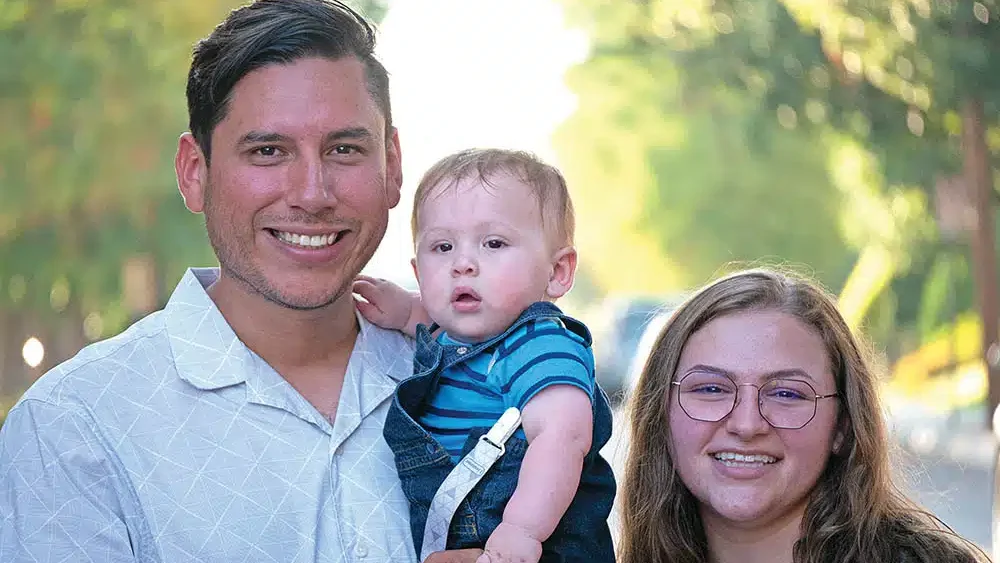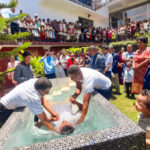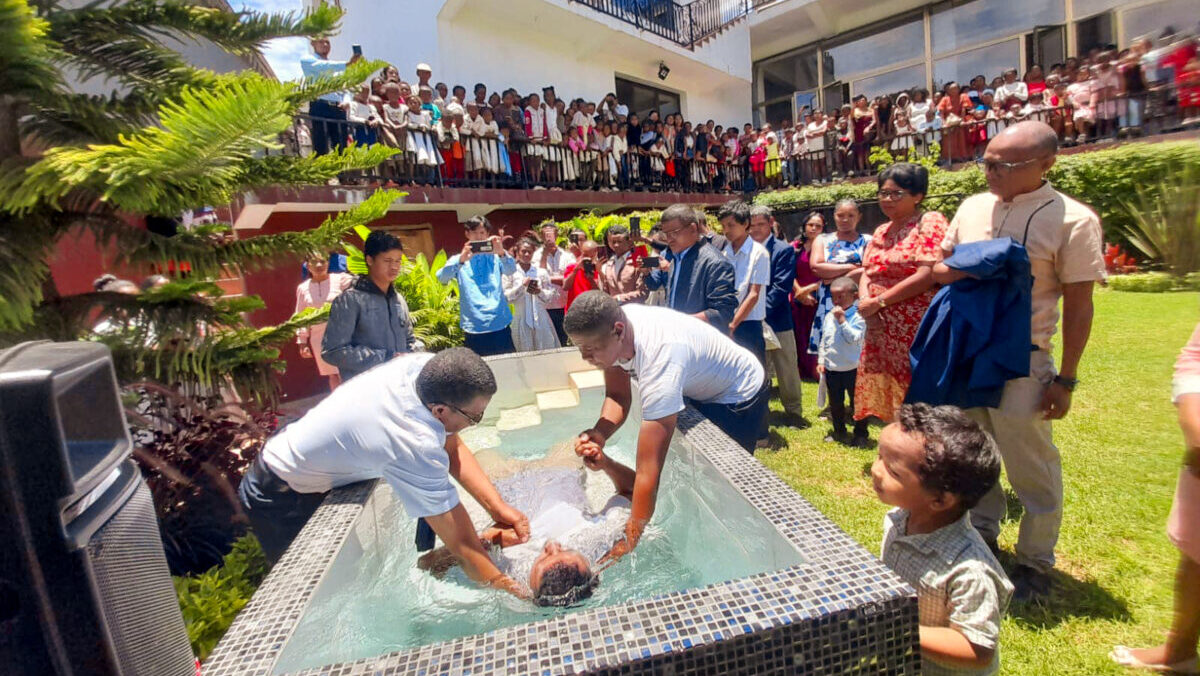Jose Arzate had a clear vision for his life as a young man: he wanted to play professional football in the U.S. and possibly even coach.
The next step on that journey would be a stop at West Texas A&M, where he received a scholarship offer to play football in 2013. Arzate, along with his parents and siblings, made the 14-hour move to Amarillo so he could pursue his dream in nearby Canyon.
The transition was harder than they could have imagined. His family was unable to find housing or jobs and often had to depend on the generosity of others to eat. Then it got worse. The coach who wanted Arzate to play football at the university left and a new coach was brought in.
Closed door
That closed the door for Arzate to play football there. He felt like he had let his family down and that his world was falling apart. Two years later, in the midst of continued uncertainty, he called his former pastor, Rolando Aguirre.
“Things didn’t work out the way I planned,” Arzate told Aguirre.
“I’m glad they didn’t work out,” Aguirre replied, “because I could see that wasn’t for you because you have a call to [pastoral] ministry.”
Being a pastor had never crossed Arzate’s mind. But after the conversation, he began to see his life through a different lens and sense God moving him in a new direction.
“If I hadn’t gone through that desert,” Arzate said, “I wouldn’t have understood that I had a pastoral calling.”
God was now opening new doors. Arzate enrolled at Southwestern Baptist Theological Seminary and answered a call to serve as an interim youth pastor at a church in Amarillo. It was at this church he met his wife, Natalie, who was active in worship and missions. As they served the church together, they saw a need in their community for a Christ-centered, biblical Hispanic congregation. Since God had put it on his heart to start such a work, Arzate volunteered to help his church start a Hispanic ministry.
Little did he know, God would soon change Arzate’s path once again.
‘Planting is a long-distance race’
Before long, another Amarillo pastor — Andrew Hébert of Paramount Baptist Church (who now pastors Mobberly Baptist Church in Longview) — reached out to ask Arzate advice about how to start a Hispanic ministry at his own church. The two made a strong connection that day, and eventually Paramount invited Arzate to lead that new Hispanic ministry.
God blessed the ministry greatly. In less than six months, 20–30 people were attending the church’s Hispanic service. By the time it hit its one-year anniversary, 100 people were attending. The Arzates remained there for two years before answering a call to lead the En Español ministry at Travis Avenue Baptist Church in Fort Worth.
It was at Travis Avenue that God would begin to guide Arzate in a new direction. Though his call to ministry had led him mostly to Spanish congregations and efforts, he and Natalie began to see the need to minister to overlooked populations in multicultural settings.
What followed was another call — a literal one, from Northrich Baptist Church in Richardson. Church leaders reached out to Arzate to share with him their vision of reaching a more diverse population. They told Arzate that the church, once strong and well-known in the community, was in decline. It struggled to reach younger people. A new vision was needed, and they asked Arzate if he would come and lead the church.
Answering the call
Once again, he answered the call. Only this time, rather than starting a church from scratch, he and church leaders at Northrich were faced with a decision: replant, revitalize, or relocate? Ultimately, he reached out to the Southern Baptists of Texas Convention, which helped the church make the decision to replant.
Working with the SBTC brought valuable benefits, Arzate said. He and his wife both began to receive church planter training. He also began to develop a close relationship with Julio Arriola, who directs Send Network SBTC — a planting partnership between the SBTC and the North American Mission Board. Arzate said Arriola has served as one of his mentors.
“Jose has a deep-rooted passion for multicultural church planting,” Arriola said. “He recognizes the significance of preaching and serving a community that encompasses a variety of ethnicities, not limited to Hispanics or Anglos, but embracing a multitude of ethnic groups.”
Because of its heart to reach its community, Northrich took on a new name during the replant process — The Bridge Church. As its name implies, the church wants to be a bridge between the nations and the gospel of Jesus Christ. It desires to connect people to the Word of God, to other people, and to their God-given purpose.
Arzate knows the work won’t be easy. He feels like another part of his ministry is to encourage other planters who may get discouraged when they don’t see progress as soon as they’d like — just as other people have encouraged him along the way.
“Every week I’ve considered throwing in the towel because it’s hard,” Arzate said. “Planting is a long-distance race. It is for the one who endures, and not for the one who [wants to see] fruit quickly. When a vision is about reaching the nations and the next generations, the enemy gets restless and attacks to bring discouragement, but God gives us the strength to persevere and fulfill His purpose through prayer.”
EDITOR’S NOTE — This story was written by Arlene Sanabria and originally published by the Southern Baptist Texan.








